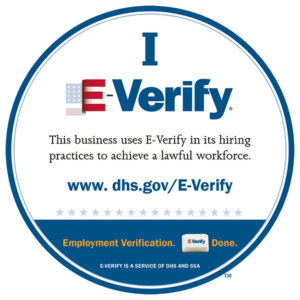The Real Reasons Turn Down Your Job Offer
There are a few things that are more challenging than finding the right candidate, extending a job offer to them, and hearing them say thank you, but no thank you. But with competition for top talent only becoming harder, recruiters can more and more frequently face this scenario. However, if you understand the reasons why your job offer was refused by an applicant, you can use that information to make appropriate improvements to your recruiting process to learn more I will take it!
That said, the six key reasons why applicants turn down job offer and what you can do to keep them from saying no to yours are the following:
They accepted another offer
When considering a career change, most candidates like to have more than one option in order to feel like they have options and back up plans. And today, applicants can quickly recognize other possibilities using job boards, website updates, social media-plus networking, and technology have made it easier for them to apply for something.
It is important to bear in mind that while at the time of your first interview, the applicant might not have been carrying out an active search, this may change rapidly. That’s why it’s important to start any conversation that follows. Has anything changed since we last spoke? This will help you spot any red flags that could result in a promising hire being missed.
Their present employer accepted a counter-offer from them
A counter-offer represents the next promotion and increase of a person at their organization. And, because of the shortage of top talent, the percentage of counter-offers offered and approved has escalated.
Throughout the interview process, this problem should be addressed. For applicants who can use your bid to manipulate a counter-offer from their current employer, you should not waste your precious time.
To prevent this, ask the candidates the following question: What five things would you change if you were your boss? The response to this question indicates the true reason for their interview. In their present or last position of work, there is something they can’t change. Compensation and improvement are still part of the debate, but it is the stuff they don’t like and can’t manage that will drive them to consider the offer.
You didn’t sell them in your company’s position
Sometimes, the responses given in an initial interview are guarded responses and sometimes alter. Re-ask specific questions to make sure you understand what this person needs to be there to accept your bid. There will also be an insight into their interests by analyzing their explanations for previous career changes.
When you know what is most important to each applicant, provide clear examples of how the job offer and the organization actually provide what is most important to them. Give them points of sale for your business that are not listed on your website. Share retention stats and prospects for progression. If appropriate, offer clear examples of how great career development has been achieved by someone with similar qualifications in fields that are important to this particular candidate.
They did not click with the manager
People want to work for a business and for a person who they can value. Candidates claim that when they are approached, they encounter the very best of an individual. If they are nervous, feel stressed, or just don’t click with the person who is going to be their boss, you can’t do anything to extend an offer that would be accepted.
Exit interviews expose the reasons why individuals quit their current jobs, which often has nothing to do with the job or business. The person is leaving because his boss didn’t like them. Talking to these people and uncovering a person’s favorite boss is important for you and why and the employer they liked least and why. This will help you decide if your hiring authority’s personality and management style and the applicant will click before going through the interview process.
The interview process was long
Your method of interviewing can harm or improve your ability to expand approved offers. Timing is vital to your success, which is why it is necessary to obtain from your recruiting authority a clear target date to recruit. You will not attract the best talent who will accept your offer if you start the recruitment process too early or too late.
Your applicants will interview for other positions when the interview process takes too long and sometimes perceive delays in the hiring process as a lack of interest. It is important to increase the recruiting process when you have found a rock star candidate. A sluggish method of recruiting has cost many businesses the advantages of attracting the best candidates. Some businesses do not even need the completion of an application and can use the LinkedIn profile of the user to speed things up.
The package was not good enough
The choice of whether to accept or refuse job offers is often influenced by salary and benefits. If a candidate thinks like they are low-balled, they are going to refuse a bid. If a benefits package’s costs and deductibles are high, they can refuse an offer unless the salary paid compensates for the costs.
Pre-close the candidates for money, so you know exactly what a person would consider without hesitation before you ever extend an offer. Throughout the entire interview process, you must explain information on compensation and benefits. Salary expectations often grow and you don’t want to be blind-sighted or get your work offer dropped.
Conclusion
Often, making small changes will significantly increase the percentages of your deals that are extended and approved in these six areas of your hiring process.














